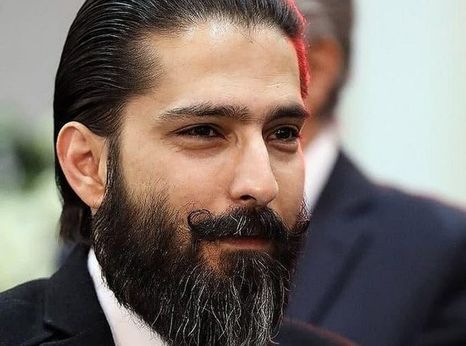Jailed lawyer on hunger strike

Who is Amirsalar Davoudi?
Amirsalar Davoudi is a human rights lawyer who has represented many prisoners of conscience, including human rights defenders, other civil society activists and members of ethnic and religious minorities. He was Zeynab Jalalian's lawyer – an Iranian Kurdish woman who was sentenced to death in early 2009 on charges of “enmity against God” (moharebeh), in a grossly unfair trial. He played an instrumental role in the subsequent commutation of her death sentence. He has also persistently advocated for Zeynab to receive access to medical care.
Between July and August 2018, Amirsalar Davoudi was summoned several times to the prosecutor’s office in Evin Prison. One there, he was questioned about an interview he had given to the Persian-language service, Voice of America, a US broadcaster that has a large audience in Iran. The results of these interrogations formed the basis for his arrest on 20 November 2018. He was initially charged with five offences: “insulting the Supreme Leader”, “spreading propaganda against the system”, “gathering and colluding to commit crimes against national security”, “spreading lies” and “insulting officials”. However, when his case was sent to branch 15 of the Revolutionary Court in Tehran, around mid-January 2019, the authorities opened a second case against him.
In this new case, he was charged with two offences: “forming a group with the purpose of disrupting national security” and “collaborating with hostile governments”, the latter was specifically related to his Voice of America interview. After combining both cases, the judge acquitted him of the charge of “collaborating with hostile governments”, but convicted him on the other six charges and sentenced him to 15 years in prison for “forming a group with the purpose of disrupting national security”, seven years and six months for “gathering and colluding to commit crimes against national security”, three years for “spreading lies”, two years and three months for “insulting the Supreme Leader”, one year and six months for “spreading propaganda against the system”, and 111 lashes for “insulting officials”.
Torture and other ill-treatment, including prolonged solitary confinement, are widespread and systematic in Iran, especially during interrogations. Under international law, torture and other cruel, inhuman or degrading treatment or punishment are prohibited absolutely, in all circumstances and without exception. Article 7 of the International Covenant on Civil and Political Rights, to which Iran is a state party, prohibits torture and cruel, inhuman and degrading treatment and punishment. The UN Standard Minimum Rules for the Treatment of Prisoners (known as the Nelson Mandela Rules) define prolonged solitary confinement as “solitary confinement for a time period in excess of 15 consecutive days”.
- Downloads
- Download in PDF
- Download in Word